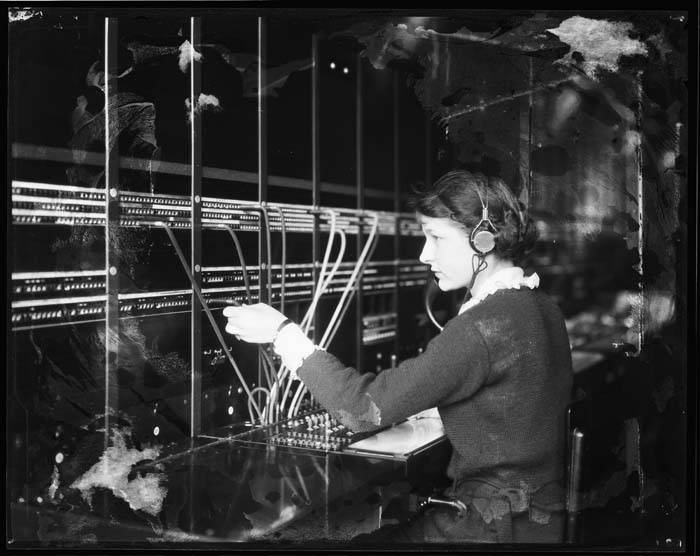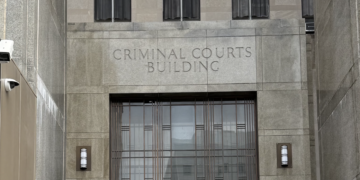
Monday, January 9, 2023
Sunny. High 44 degrees.
Notices
Our calendar has lots of local events! Click on the link or the lady in the upper righthand corner.
Nostalgia Trip
The Vanishing Telephone Operator
By Ann Cooper
My grandfather died in 1937, leaving my grandmother, just a little over 40, to a precarious financial future. She lived in a small town in Arizona, and the phone company came to the rescue, installing equipment in her tiny home to enable her to be the town’s telephone operator. Her younger daughter went to work for AT&T, too, rising to chief operator in a larger Arizona town. Her daughter, my cousin, also was a lifelong AT&T operator, as was my stepmother.
From a consumer standpoint, there was much to hate about the AT&T monopoly. And I have no idea how well, or poorly, AT&T paid my relatives and the many thousands of other women who worked for it over the years as operators. Few are left and fewer still will survive with AT&T’s latest cut: starting this month, the company’s digital landline customers can no longer reach an operator or directory assistance by dialing 411 or 0. The Bureau of Labor Statistics says there were fewer than 4,000 operators in 2021, down from a peak of 420,000 in the 1970s.
What I do know is that, in much of the 20th century when women’s work options were exceptionally limited, the phone company offered them secure employment and a decent pension at retirement. I’m guessing that I’m far from the only Rag reader who remembers Ma Bell and what it meant to your friends or family members who worked there – as operators, or in the famous Bell laboratories in New Jersey, or elsewhere in the system. If you have a story to share, please do so at carol@westsiderag.com. We’d love to hear them.
And even if you don’t have a story but are nostalgic or curious about the history of telephone operators, CNN’s backgrounder here tells the story.









My mother started working at AT&T as an operator when she was a teenager. She quit to raise a family then returned to a different role 20 years later. AT&T bridged all her time together and she retired, with a pension and medical benefits, after 30 Years service. Sure can’t do that anymore.
Unfortunately, as CNN points out, this is just one of far too many examples of women having been underpaid. “Male managers decided that women were better suited to answering and connecting calls from rude customers because they were seen as more docile and polite. Companies could also pay them less than men.”
Still today, only 3 of 11 senior leaders at AT&T are women. There’s still a long way to go!
Interestingly, presence of women in leadership positions does not ensure that a rank-and-file female employee in the organization is compensated fairly. Unfortunately, there are unfit female leaders just like there are unfit male leaders…
I think the male leaders take the prize on this one.
thanks for the piece on your mom working for at&t (the widows & orphans stock, at least at one time …) – always interesting to read about “what was” for our parents back in the day, and how things have changed
The classic caricature of a telephone operator was, of course, the Lily Tomlin character Ernestine. How will the new generations understand her? https://www.lilytomlin.com/lilytomlin/lily-tomlins-characters/ernestine/
In 1952, I grad. Hi-School in a very sm. town, Netcong N. J., My Aunt Julia Smith was the Chief Operator, & got me the job, We sat at a “B’ board, plugged in, and when a # lit up, you plugged in and said:”# please” & then connect them to there party!! There were single lines, and party lines, (4 phones on the same #) each had a separate ring, R was 2 rings, M was 3rings S was 4rings, W was 1 long ring!!! I am 88 in March, & remember it like it was last week!!! If you pulled your plug out 1/2 way you could listen, with out the person knowing!! There were split “shifts” like 10a.m. till 2p.m. you left & came back 7p.m. till10p.m. There were your 8 hours!! You got so bored saying “# please” you would say “Bumble Bee’s” & they would still give you the #!!!!!!!!! Seven of us on the long “B” board at an given time!! I wouldent have given it up for anything!!!
And you’re not going to tell us some of the things you overheard?
My phone number back in the day was MOuntainview 8-2877J…
and if I ever needed to speak to my mother, who was inevitably across the street having coffee at Peggy’s, I’d pick up the phone, wait for the operator (did I have to dial 0? I don’t remember…) and say to her (happily it was always a woman) in my best 7 year old voice:
“I’d like S on this line, please”
& she’d then connect me to MOuntainview 8-2877S.
I miss all those connections.
ADDENDUM:
PS- and now I live in anonymous NYC where only today I went to Macy’s, which has turned into a ghost town populated solely by petroleum byproducts available at incredibly high prices and no workers on the sales floor for me to ask:
“Whatever happened to breathable 100% cotton blankets? I feel like I’m shipwrecked here on a vast island of polyester; has cotton too somehow become an endangered species?”
That pointed question unasked, I found there was nothing left to do but drift down to the subterranean tunnels that lead back to the Upper West Side where I would nurse a leaden migraine…
“bumble bees” lol Constance, you rapscallion.
Great story.
Anyone who remembers Lily Tomlin’s phone operator, or Elaine May’s, is lucky,
indeed. Here’s Elaine to Mike Nichols: “The Telephone company would not steal your di-yime.”
THEY WERE GREAT!!!!!
Change only affects digital (wireless) customers. AT&T can get away with it there because wireless communications have far less federal and state regulations to worry about.
Landline (as in wired) telecommunications are safe from this change for now. But like Verizon and rest AT&T has been doing all they can to get shot of landline (copper wire) customers.
My Mother worked for the phone Co in my hometown in the 30’s. When she and my Father were dating in high school, she found that he was seeing another girl. So when he would try to call her in the evening, his call would be “plugged” into the Drug Store, which was closed. The call would just “Ring! Ring! Ring!’ She would say, “It worked!”
Working for the “phone company” was my first job when I moved from North Carolina to Paterson NJ in 1960 (I was a long-distant operator and my cousin was an information operator in the next office). I was a 20 year-old African American woman and found my work place to be a pleasant environment that afforded me the opportunity to meet friends of diverse backgrounds and ethnicity. The calls that we handled included high ranking politicians. I learned to invest in a 401k and how to excel in my first job out of high school. It was in this office where I was working when JFK was assassinated.
After 2 years I transferred to a large office here in Manhattan down in Chelsea…which I didn’t like as well and resigned after a few months. I am thankful for AT&T giving me such a solid first work experience.